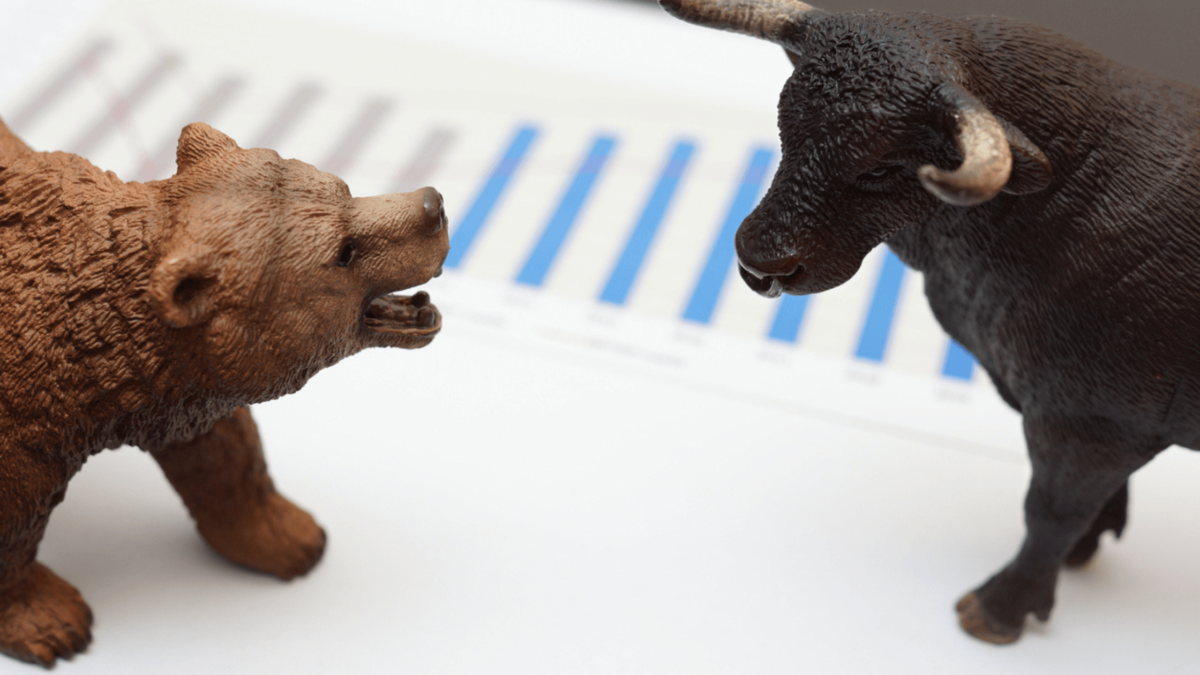Recession Fears in the US Likely to Gather Momentum
June 27, 2022

The twin challenges of rising US rates and recession are still dominating market sentiment. As such, we view bounces in US stocks in this environment with great scepticism.
It is likely that in months from now, these little rebounds will be seen as (in the language of the popular board game Monopoly) “get out of jail free” cards.
Bear market bounces
The latest bounce in the S&P 500 Index is likely just another one of those technical rebounds that fade at lower highs and head to lower lows.
The index bounced 6.5% last week on technically oversold oscillator indicators.
And it appears purely technical, coinciding with the index bouncing off the bottom of a downtrend channel (see below), with very little new in terms of fundamentals.

The news flow was actually pretty dismal last week and looks largely negative for risk assets.
On the rates front, the US Federal Reserve (Fed) Chairman Jerome Powell last week said his “commitment” to fight inflation was “unconditional”.
Mr. Powell said it wasn’t the intention of the Fed to “provoke” a recession, but that (recession) was “certainly a possibility.”
And to put beyond doubt his statement of “unconditional” commitment to fight inflation, the Fed Chair said it was “absolutely essential” to bring down inflation.
Rates close to 6% by end of 2022?
Seriously Mr. Powell – rates “pretty close” to 6% by the end of the year? However, on top of that, he said something stunning last week that was little reported, let alone analysed.
It was so stunning I had to watch the video of his testimony to the US Senate, to understand the context and to hear verbatim what he said.
First of all, an update. In its 17 June Monetary Policy Report, the Fed displayed various versions of the Taylor Rule, pointing to an appropriate policy rate of over 6%.
And this report was cited by Senator Thom Tillis in his questioning of Jerome Powell.
So, Mr. Powell was asked why the Fed had allowed its policy rate to fall behind the Taylor Rule rate prescriptions.
He then replied that:
“Rates are moving up much closer to where the various forms of the Taylor Rule are, and I think by the end of the year, we will be pretty close to where some of the Taylor Rule iterations are.”
Let me repeat this: The Taylor Rule refers to the appropriate Fed rate under any particular set of economic circumstances.
And the Fed’s own latest semi-annual report refers to a few different versions of the Taylor Rule, turning out rates outcomes just above 6%. But we are currently at around 1.6%.
Furthermore, there are only four more Federal Open Market Committee (FOMC) meetings between now and the end of the year.
If he was being literal – the Fed rate reaching 6% by year-end – it would be catastrophic, as in “thermonuclear” bad.
Potentially devastating for financial markets
It may well be that he was being loose with the language on rates. But it is still very worrying.
If he meant the long-term US Treasury yield – sometimes loosely referred to as a rate – that’s still a doubling from 3.13% last week.
At the moment, there are very few analysts out there forecasting 6% for the 10-year US Treasury yield by year-end. It would be very damaging for financial markets.
Surveying the overall US economic and investment landscape, our sense is that bounces in the US market, such as the one we saw last week, may be what is called in the Monopoly boardgame “get out of jail free” cards for investors caught long and wrong in US equities.
That is, there will be bounces but each one could be off a lower low and terminating at a lower high.
Indeed, the market’s mood could swing in two to three weeks back to gloom, with recession increasingly in focus.
Recession and the US consumer
Note that the University of Michigan last week revised its June Consumer Sentiment Index to a final reading of 50.0, down from its preliminary figure of 50.2.
This compares to 58.4 for May. This is the lowest recorded for this index and is at levels which previously signaled an ongoing recession.
Readers should be aware that there is a historical relationship between the University of Michigan Consumer Sentiment Index and US asset allocations into stocks.
And currently, there is a huge divergence between the two – with the asset allocation into equities still holding up despite the plunge in consumer sentiment.
This speaks to the risk of more selling in US equities ahead unless consumer sentiment picks up quite dramatically.
Risks rising amid slowing growth
While we don’t think a recession is underway yet, the risk of a recession is very high. The buffers have run thin; pandemic savings relative to retail sales have almost normalised back to pre-pandemic levels.
Amounts owed on credit card and revolving credit have soared above pre-pandemic highs. The latest data for sequential growth in real retail sales have gone negative again.
Restaurant spending growth has dipped again, albeit hanging in there with a marginal month-on-month growth rate.
The bottomline is that the consensus is still too optimistic on US economic growth.
The latest Philadelphia Fed survey of professional economists still had a growth rate of 2.3% for 2Q22, after revising down from 4.2%.
We believe 2Q will (at best) narrowly dodge contraction again on a tiny growth figure with a zero in front of it.
Interestingly, the Atlanta Fed’s GDPNow Model, which predicted 2.3% growth for 2Q22 in May, is now estimating zero growth. Markets don’t like disappointments.
Say Boon Lim
Say Boon Lim is CGS-CIMB's Melbourne-based Chief Investment Strategist. Over his 40-year career, he has worked in financial media, and banking and finance. Among other things, he has served as Chief Investment Officer for DBS Bank and Chief Investment Strategist for Standard Chartered Bank.
Say Boon has two passions - markets and martial arts. He has trained in Wing Chun Kung Fu and holds black belts in Shitoryu Karate and Shukokai Karate. Oh, and he loves a beer!




